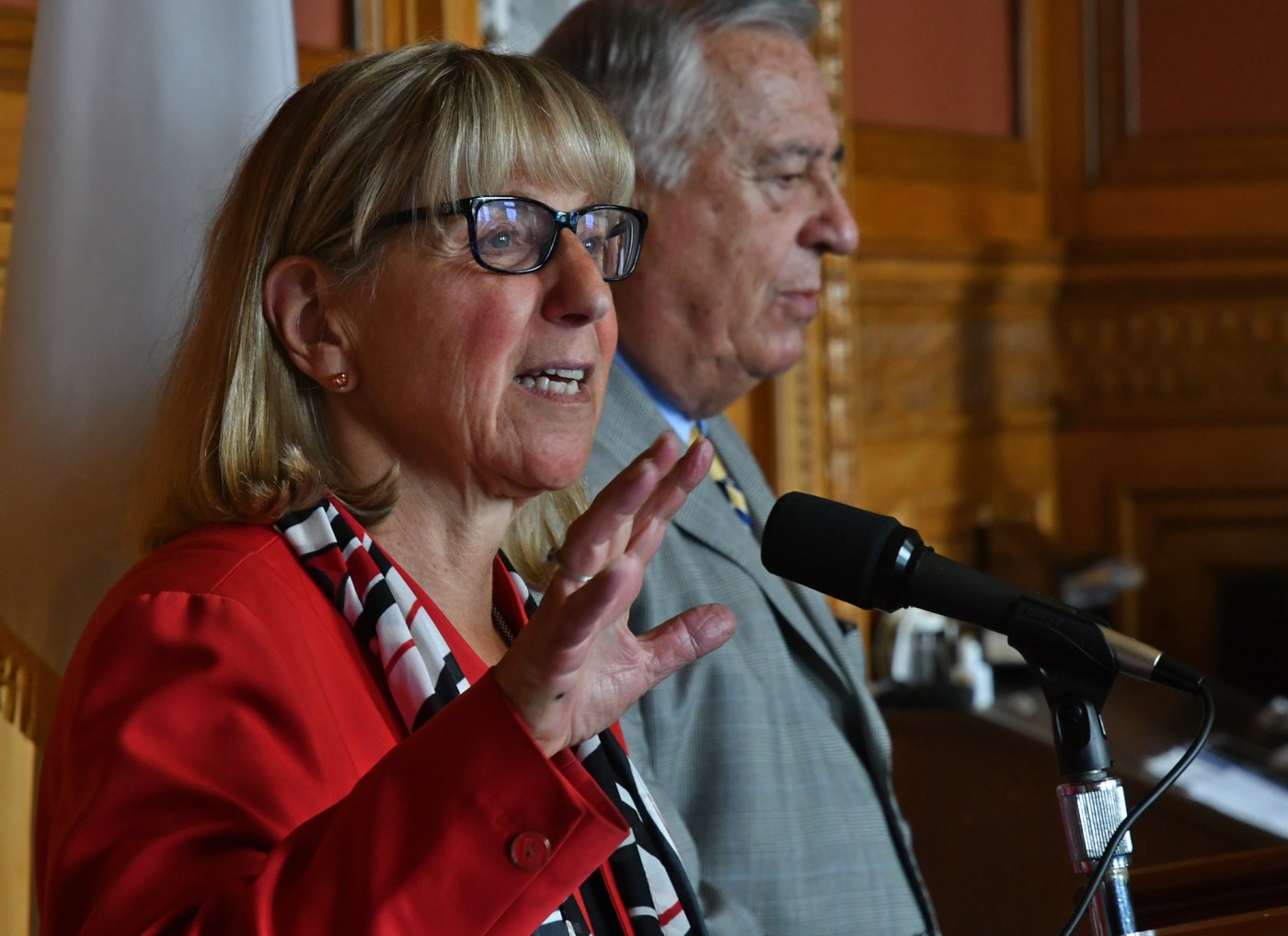
Editorial: Healey’s proposed tax smorgasbord off the menu
It looks like it’s back to the drawing board for Gov. Maura Healey in her bid to extract more revenue to support her spending ambitions.
Senate President Karen Spilka seemingly spiked the governor’s tax master plan by indicating recently that she doesn’t support Healey’s attempt to slap a tax on prescription drugs in the fiscal 2026 budget, essentially dashing a measure the governor said could raise more than $100 million in state revenue.
Spilka’s opposition to Healey’s Rx to tax prescriptions comes about a week after her House counterpart, Speaker Ron Mariano, said his chamber would not include any new taxes on prescription drugs in its fiscal 2026 spending plan.
Spilka said “no” Monday when asked if she personally supported Healey’s effort to include the pharmacy assessment in the budget for the next fiscal year.
“I have heard some concerns,” Spilka told the Boston Herald. “I think at this point in time we should … not be going down the path of that kind of tax. I don’t think it’s right, right now.”
Spilka also signaled her disapproval of other tax increases the governor wove into her fiscal 2026 budget proposal, including subjecting candy purchases to the state’s 6.25% sales tax.
Healey included the drug assessment in her $62 billion fiscal 2026 spending blueprint, which would charge pharmacies $2 or 6% per prescription, whichever is less.
The money raised from the tax would help fund MassHealth, and hopefully prevent pharmacies from closing in low-income neighborhoods, according to Healey administration officials.
But the pharmacy tax likely was dead on arrival. It generated immediate pushback due to the cost burden it would impose on people who rely on prescription drugs to maintain healthy lives.
Signs that Healey’s tax wouldn’t fly on Beacon Hill first publicly surfaced on March 26, when Mariano told pharmaceutical leaders at MassBio’s “State of Possible” conference that House lawmakers would not include “any taxes on prescription drugs in our budget.”
“We’re concerned about competitiveness and people residing and staying in Massachusetts, and adding two dollars to a prescription just based on the fact that you have to have a prescription — it was not something we wanted to do. It’s the wrong message,” Mariano said.
Asked if those concerns around competitiveness influence how he’s approaching Healey’s other tax proposals in the fiscal 2026 budget, Mariano responded, “Yes, absolutely.”
In addition to the sales tax on candy, the governor recommended applying tobacco taxes to synthetic nicotine pouches, and capping how much taxpayers could claim under a charitable deduction, which officials say is worth up to $164 million.
General tax collections outside of the income tax on high earners have slowed, returning to pre-pandemic levels of growth, prompting budget writers to look for creative ways to generate revenue from other sources.
Mariano also announced his chamber would revisit some House-backed initiatives that didn’t make it into the pharmaceutical law lawmakers hammered out late last year.
They include making permanent the ability of consumers to use drug manufacturer coupons to pay for prescriptions; and ensuring that pharmacy benefit managers pass through at least 80% of the discounts they negotiate directly to consumers.
Now that we know what taxes the governor supports — and legislative leaders oppose — it will be interesting to see if they can reach a consensus on any revenue enhancers.
Sentinel and Enterprise
Editorial cartoon by Gary Varvel (Creators Syndicate)


